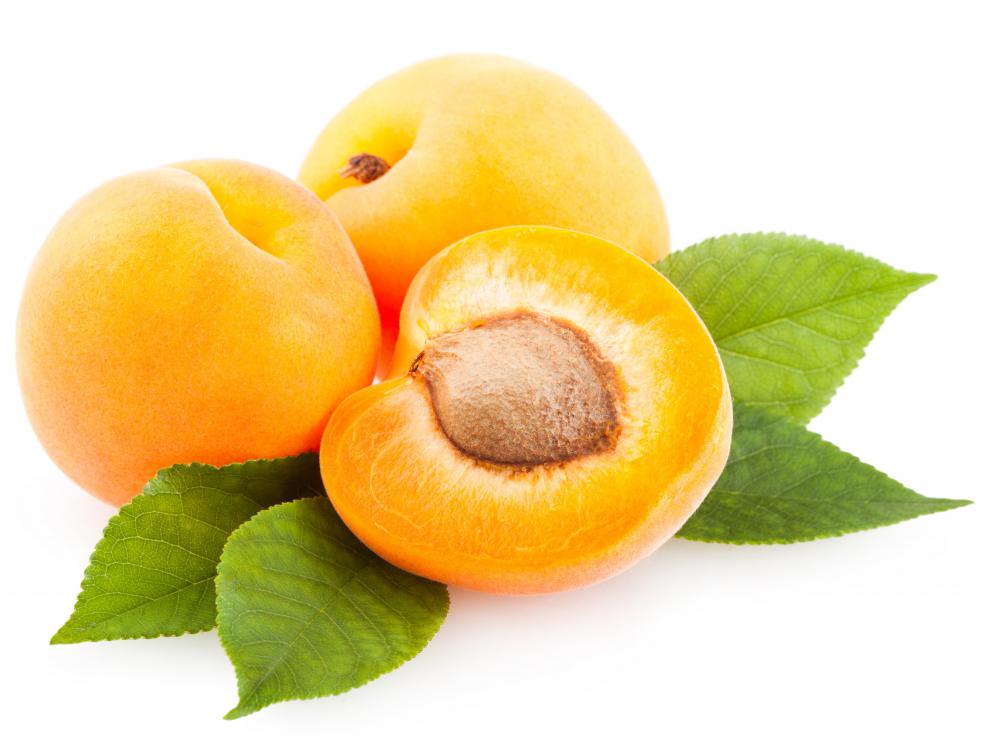At WiseGEEK, we're committed to delivering accurate, trustworthy information. Our expert-authored content is rigorously fact-checked and sourced from credible authorities. Discover how we uphold the highest standards in providing you with reliable knowledge.
What is Laetrile?
Laetrile is a semi-synthetic molecule created in the United States. It shares much of its chemical structure with the glycoside called amygdalin. In other countries, such as Mexico, laetrile is actually amygdalin, simply listed under another name. For this reason, the words laetrile and amygdalin are used almost interchangeably.
Amygdalin, coming from the Greek word for almond, was initially isolated in 1803 by Pierre-Jean Robiquet, from the seeds of almonds. Other trees in the same genus also have fruit with this compound, including apricots and black cherries. The compound is found in the pits or nuts of the fruit.

Several studies were conducted on laetrile in the 1830s, but no conclusive evidence of its usefulness was found. In 1920, a physician named Ernest Krebs re-discovered this compound in attempt to make flavored whiskey. It is thought that he termed the substance laetrile. By 1950, he and his son, Ernest Krebs Jr., were treating cancer patients in California with this compound.
Krebs nicknamed laetrile 'vitamin B17,' but the compound is not a vitamin. It does not have any of the properties of a vitamin, and is not recognized by the United States Food and Drug Administration (FDA) as such. Krebs named this compound for a vitamin in the hope of avoiding federal legislation on drug regulation, due largely to the stigma of amygdalin, which was deemed dangerous after it was used as a cancer treatment in the 1920s.
The effect of laetrile as a cancer-fighting agent is uncertain. This drug is not recognized by the FDA as having any beneficial properties of this kind, and in 1980 a clinical study by the American National Cancer Institute demonstrated that the compound failed in four specific cancer-fighting areas. It failed to extend patients' life spans, did not help them to gain weight, improve symptoms, or cause their cancer to regress. In short, it was ineffective.
As a result, websites that sell amygdalin and laetrile in the United States are being shut down. Newspapers, such as the Los Angelas Times, have published articles condemning the compound. Numerous holistic and alternative healing websites, however, still argue in favor of the benefits of this drug.
One important and potentially fatal side effect of this drug comes from the beta-glucosidase enzyme found naturally in the human intestinal tract. This enzyme can react with amygdalin, causing the release of cyanide. If the drug is taken orally, it can lead to an unpredictable potential for poisoning or death. In fact, a 1982 trial of the drug found that out of 178 patients, two suffered cyanide poisoning. In 1974, this drug was officially labeled as "quackery" by the American Cancer Society.
AS FEATURED ON:
AS FEATURED ON:











Discuss this Article
Post your comments